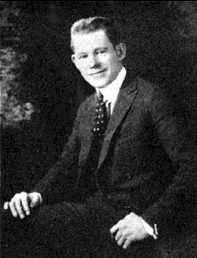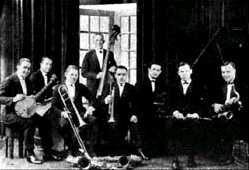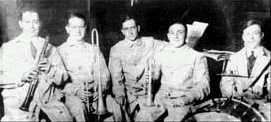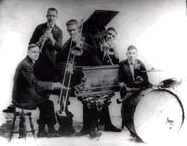| (3) The Word "Jazz" | |
|
It was in 1913. When Joe Frisco, who was a famous vaudevillian in Chicago, came to New Orleans to have live. Tom Brown, a trombone player, called for several musicians for their back band. He was quite impressed with the music called "Jass Music" at that time, and he spoke about the music after having gone back to Chicago. This was the first time that a word "jass" appeared on the paper. Frisco invited Tom Brown's "Tom Brown's Dixieland Jass Band" to Chicago in 1915. This means that there had been Jass Music in New Orleans even before that. In 1916, another promoter traveled from Chicago to New Orleans in order to seek a "Jass Band", and he found one; "Stein's Dixie Jass Band" leaded by Johnny Stein. In the same year, based on Stein's band, Nick LaRocca an Italian organized "Original Dixieland Jass Band", and he became a leader. February of the next year, this band made the first Jazz record, which was sold so many, and band's name spread all around the world. The music was called "Jass" at first; however, in Chicago, people changed name from jass, jas, jasz to jazz ultimately in order to distinguish from New Orleans "jass". This way, "Jazz" seemed to be made in Chicago. |



